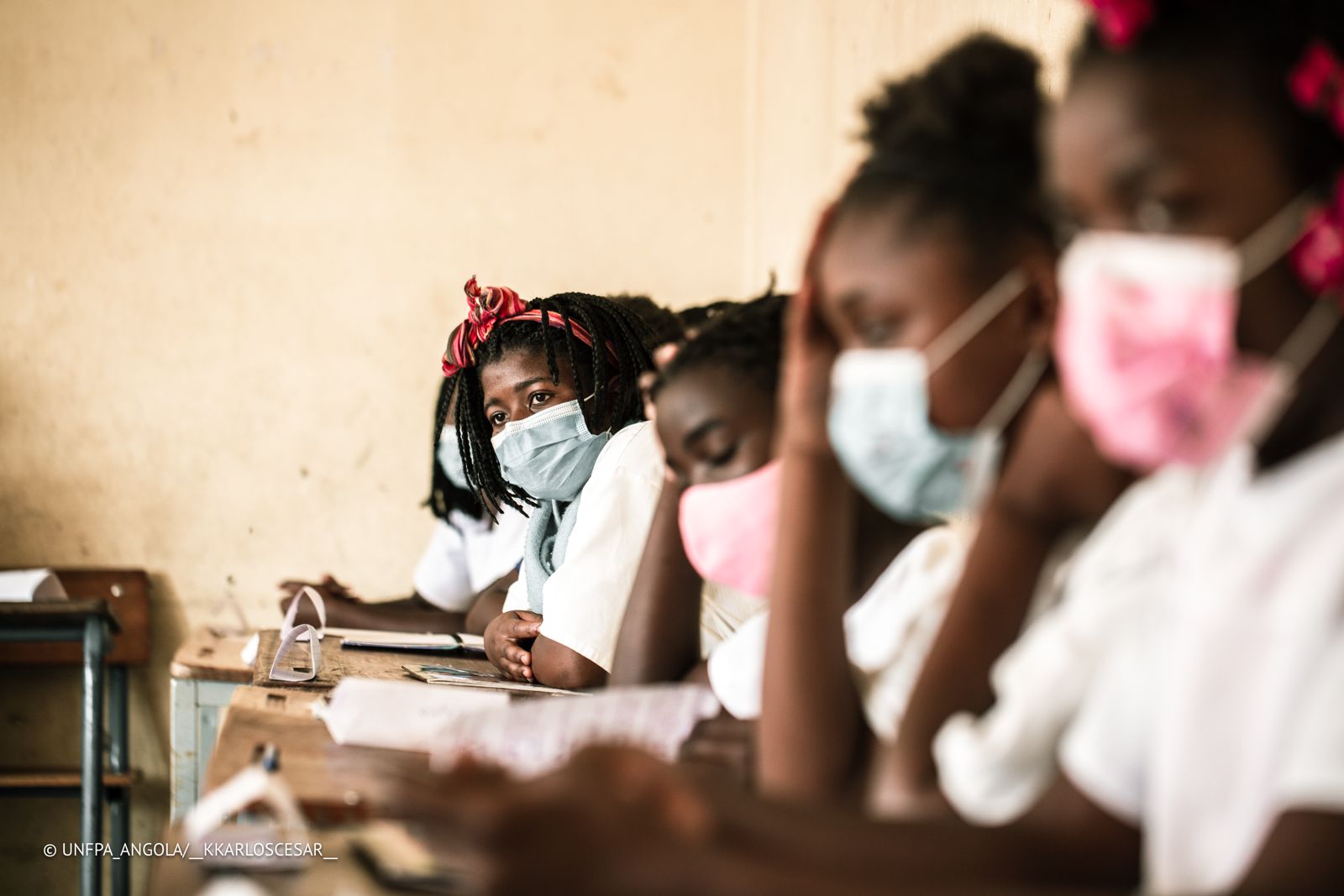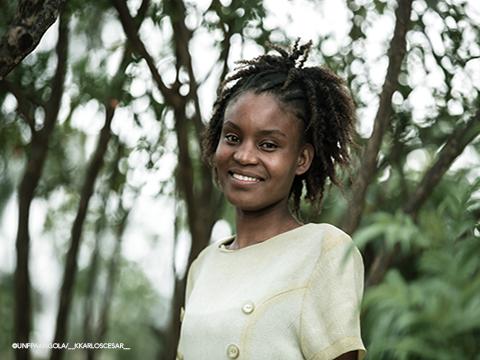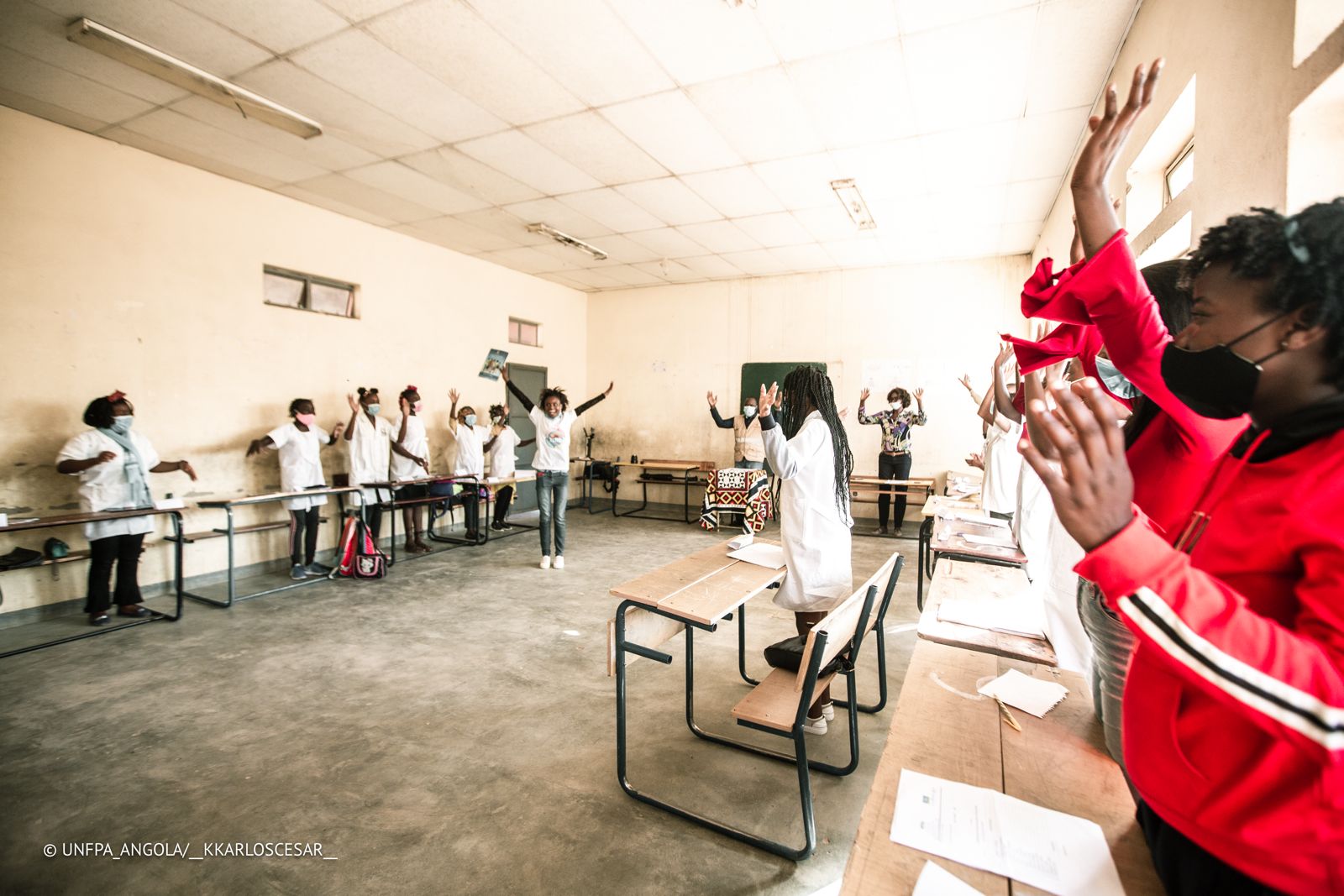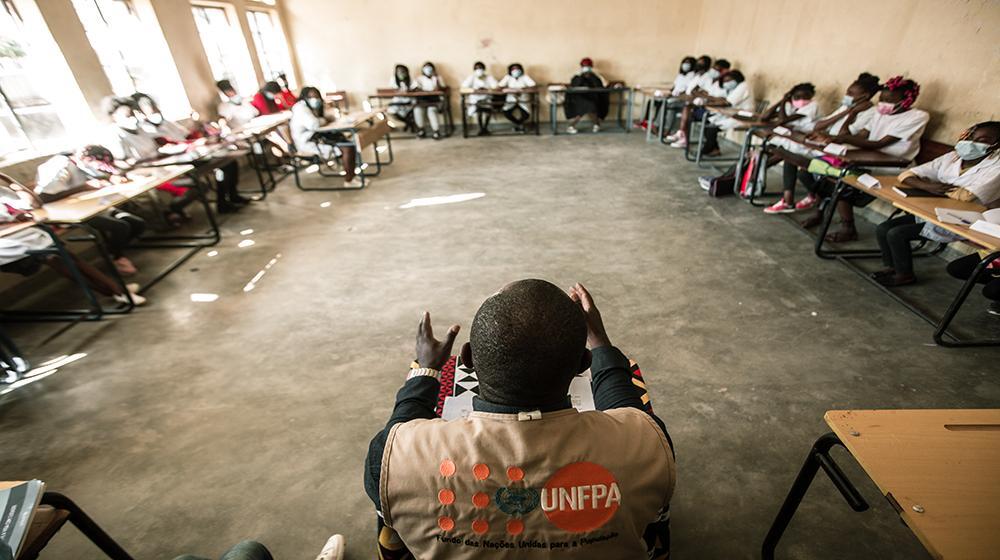SYP in Angola: Young Women Leading for a Better Future
MITCHA NEIGHBORHOOD, Lubango – “I’ve had the the door closed in my face many times, but my desire to bring knowledge to young people and adolescents in order to avoid unwanted pregnancy has no end” confessed to Stela Varela, activist for the CAJ (Youth Support Center) and beneficiary of the Youth Safeguard Program (SYP).
Stela Madalena Rodrigues Varela, is a 28-year-old girl, resident in Bairro da Mitcha, on the outskirts of the city of Lubango, in the province of Huíla. For Stela, working with the community and for the community is a task that fills her with pride, as it is one of the ways she has found to be able to take the knowledge acquired over the 7 years of activism.

Young Women Contributing to a Better World
Stela works as an activist in the neighborhood where she lives. She describes the biggest difficulty she faces as the lack of dialogue between women. She often faces rejection, doors closing in her face, whenever she approaches a community to raise awareness on the negative effects of unwanted teenage pregnancy in Angola. Mothers refuse to let their teenage daughters go to her behavior change lectures. For Stela, lack of information and education may be the root cause that limits parents from being able to talk openly with their teenage children about sexual and reproductive health. “I'm not going to give up on the girls, getting the girls to participate in my lectures is my biggest challenge”. Even though Angola's adolescent fertility rate is among the highest in the region, with a contraceptive prevalence rate at 14% and the unmet need for family planning among girls aged 15-19 at 43%; teenage pregnancies continue to be a taboo and the reason for silence among the families she approaches in Mitcha's neighborhood.

Working with SYP
Through the Safeguarding Young People Program (SYP), sponsored by the Netherlands and implemented in partnership with the Government of Angola, Stela works with youth empowerment sessions set up in schools and monitored by UNFPA, with girls between 11 and 23 years old. The program was designed to address the sexual and reproductive health and rights needs of adolescents and youth.SYP aims to empower adolescents and youth to enable them to lead healthy lives, protect themselves from STIs (including HIV), unwanted pregnancies, unsafe abortions, early marriages, GBV and harmful cultural practices. SYP seeks to simultaneously promote inclusion, gender equality norms and protective behaviors.
“My biggest dream as an activist is to be able to see these girls I work with today have a better future. They graduated, had a good academic background, got married and set up their homes, ” says Stela.

Angola has one of the highest teenage pregnancy rates in the world. Underlying factors include limited knowledge of family planning, inadequate availability of commodities, limited access to skilled health workers, and insufficient household resources allocated to sexual and reprodutive health. The high rate of teenage pregnancy increases the already existing vulnerability of girls, as pregnancy is often an impediment to continuing education, exemplified by the low literacy rates of only 36.5% for young women aged 15 to 24. The country has 10 million girls and women of reproductive age and, although 75% of girls attend primary education, this proportion drops to around 15.5% in secondary education, which coincides with the age of the first menstruation. High fertility rates and high levels of teenage pregnancy also increase the risk of maternal mortality. In this context, behavior change interventions are key to empower young women and men to make better decisions to protect themselves. The SYP program in Angola will reach 60,000 youths with training on sexual and reproductive health, trauma resilience, job skills, whilst engaging with enabling environment by strengthening medical posts and the trainings of health professionals.
SYP in Angola: Young Women Leading for a Better Future



